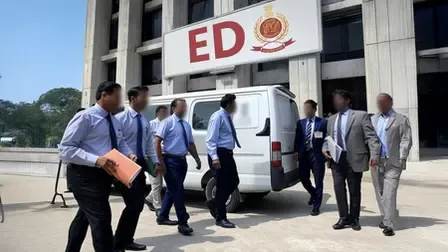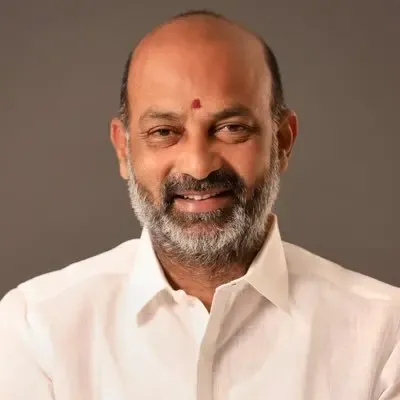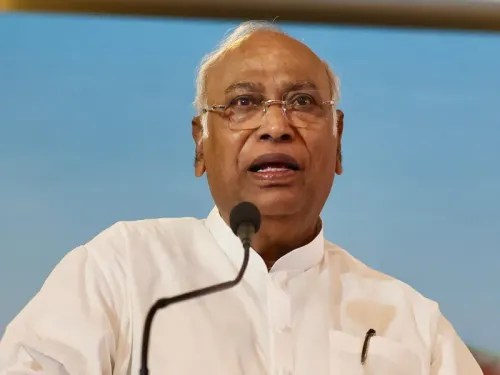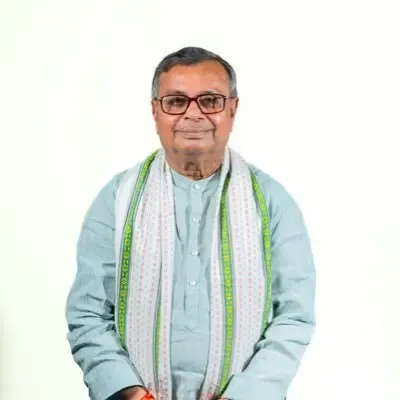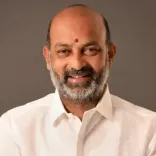Waqf Bill Unveiled as a Disguise for Government Shortcomings: Akhilesh Yadav
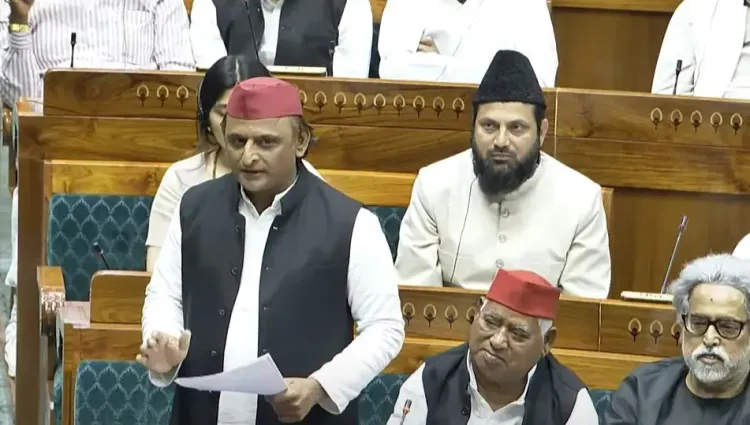
Synopsis
Key Takeaways
- Akhilesh Yadav criticizes the Waqf Bill as a cover for government failures.
- He questions the clarity of 'Unified Waqf Management'.
- Yadav calls for transparency on deaths during the Kumbh.
- He highlights the BJP's internal conflicts over leadership.
- Yadav stresses the importance of inclusivity and accountability.
New Delhi, April 2 (NationPress) Samajwadi Party President Akhilesh Yadav fiercely condemned the government, asserting that the unveiling of the Waqf Bill represented its shortcomings.
Engaging in the debate on the Waqf Board Amendment Bill 2025 in the Lok Sabha, he challenged the clarity of terms like 'Unified Waqf Management', suggesting that the Bill's core message, regardless of whether expressed in English or Hindi, remained obscure.
Yadav accused the Bharatiya Janata Party (BJP), despite claiming to be the world’s largest political party, of being mired in internal leadership conflicts and unable to settle on a party president.
Union Home Minister Amit Shah countered by contrasting the BJP's method with that of opposition parties, which he claimed choose their national presidents from a limited pool of five individuals, often from within a single family.
HM Shah highlighted the BJP’s extensive membership, arguing that it necessitated time to elect its leader.
He humorously pointed out that Yadav could potentially remain president for the next 25 years, illustrating the differences in leadership dynamics.
Addressing the discussion on Waqf, the SP chief denounced the merging of business with religious issues. He criticized the Uttar Pradesh Chief Minister for fixating on the number 30, likening him to the Hindi phrase 'Tees Maar Khan', and noted that the Chief Minister often referenced 'thirty times ten thousand crores', extending commercial rhetoric even to the sacred Kumbh.
Further questioning the government’s position, Yadav challenged the assertion that Defence and Railway lands unequivocally belonged to India, agreeing yet questioning whether these lands were sale-proof.
He argued that a more urgent issue than Waqf land was the territory where China had established villages, implying that the Bill was designed to conceal inquiries. He urged the government to reveal the number of villages established by China in the home state of Parliamentary Minister Kiren Rijiju.
Yadav called for transparency regarding the lives lost during the Kumbh, emphasizing the universal respect for the event. He criticized the government’s depiction of the Maha Kumbh as a once-in-144-years event and highlighted its claim of Rs 100 crore preparations for it. Expressing concern over the reported loss of 30 lives, he demanded a detailed list of casualties from the administration. He accused the government of mixing religion with commerce, questioning the effectiveness of its digitalization efforts and insisting on accountability for the thousands reportedly lost.
Reflecting on the nation’s rich cultural diversity, Yadav noted the recent Eid celebrations, pointing out that it has been customary for leaders of all political parties, including the BJP, to partake in such events. However, he voiced concerns over the unexplained restrictions this year, hinting at a potential conspiracy.
He acknowledged Minister Kiren Rijiju’s commitment to the teachings of Lord Buddha, stressing inclusivity despite differing beliefs in texts like the Puranas and Upanishads. He highlighted the importance of embracing diversity while warning against probing into other religions to avoid provocation.
Shifting focus to the Bihar elections, Yadav expressed curiosity about the number of women candidates the BJP would nominate. He accused the BJP of using the new Bill to obscure its failures, claiming that the emphasis on marking Waqf land was a distraction from addressing the deaths of Hindus during the Maha Kumbh.
He also addressed allegations of firing on 'kar sevaks' (during the agitation for the Ram temple in 1990), asserting that no FIR had been filed against his party and urging the government not to divert focus from essential issues.
Speaker Om Birla interjected, requesting him to concentrate on the Waqf Bill debate.
In concluding his statements, Yadav reiterated his extensive critique of the government's actions, combining incisive commentary with calls for transparency and justice. He stressed the necessity for accountability and inclusivity, urging the administration to tackle urgent issues rather than diverting attention with new legislation.

